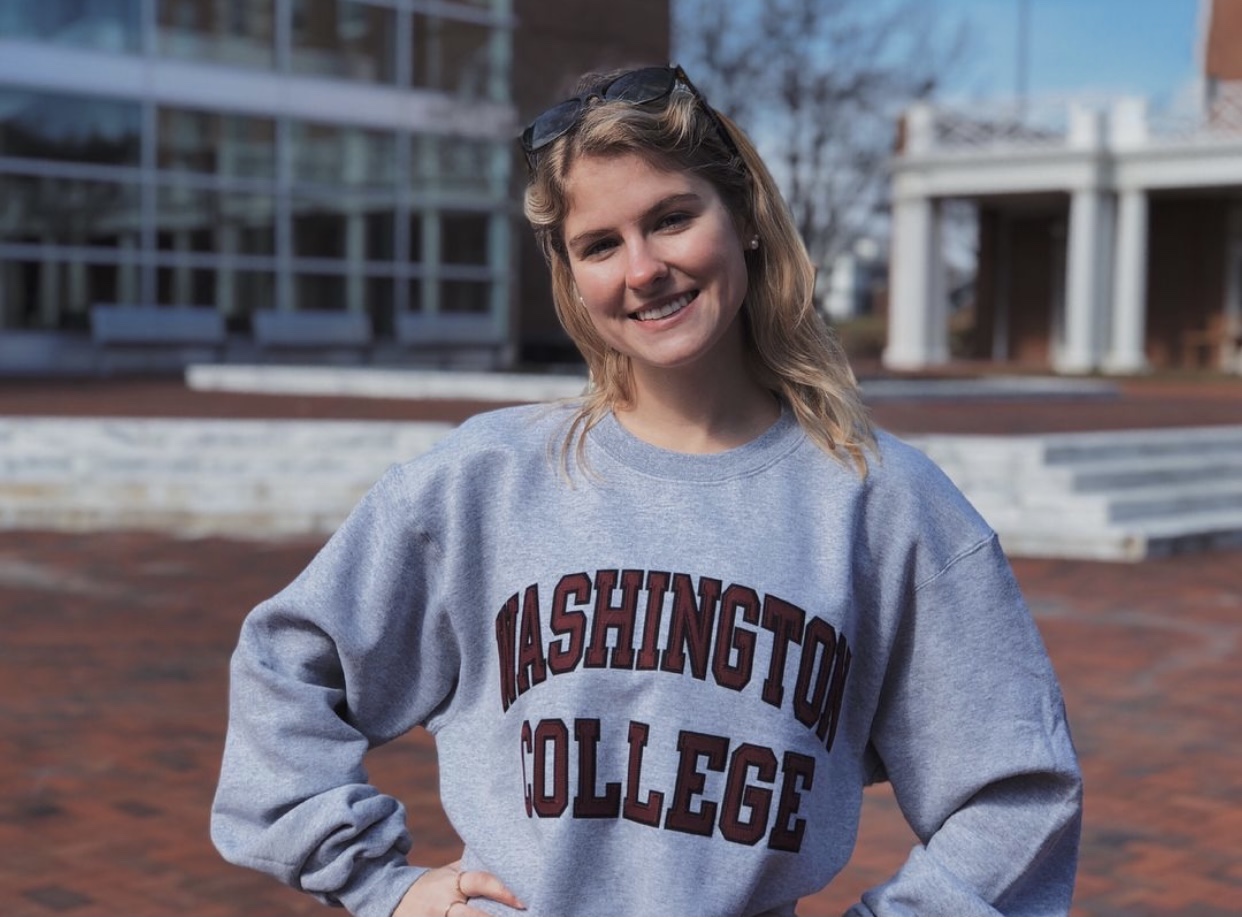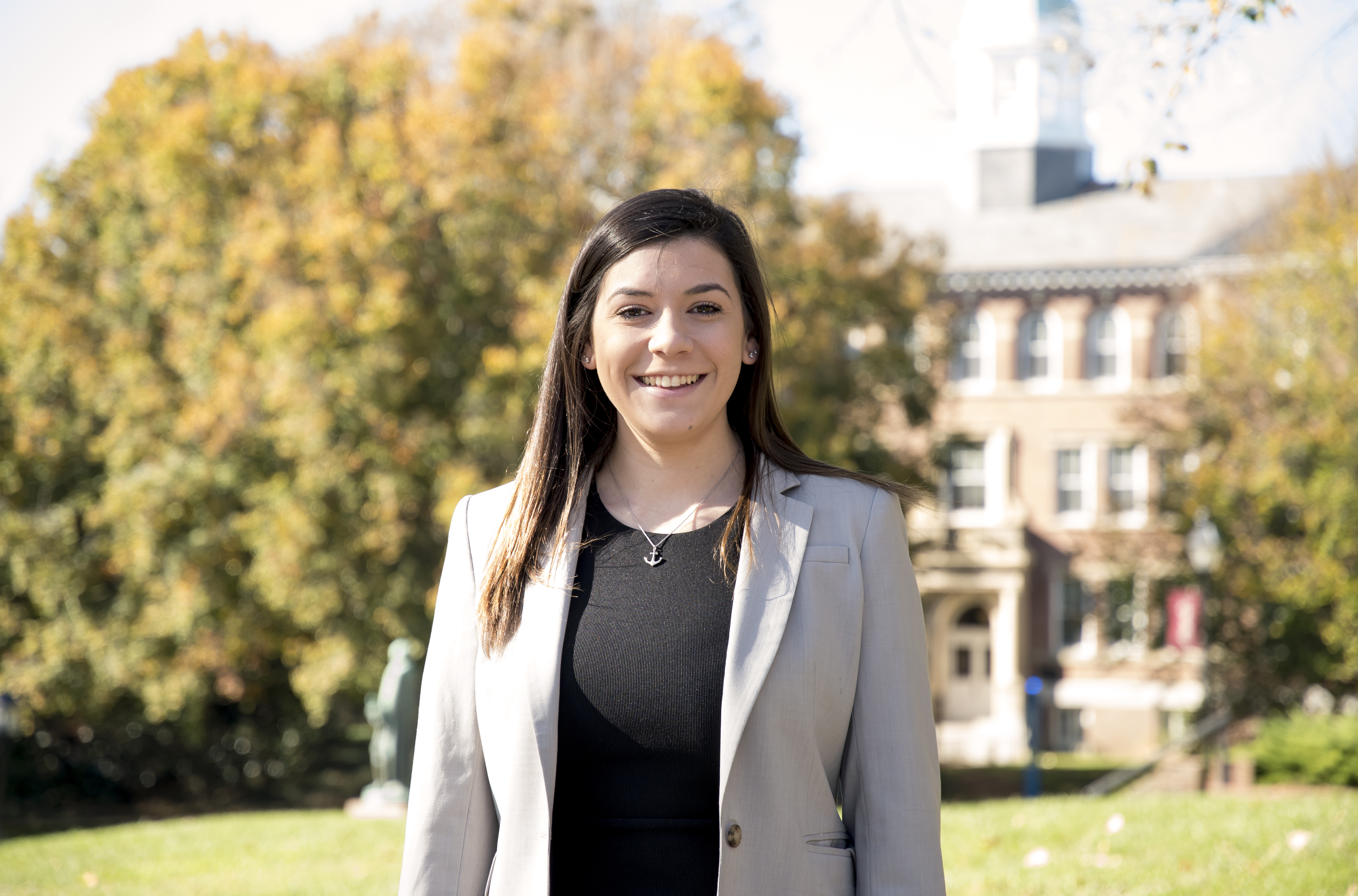
MAJORS
MINOR
LEARN BY DOING
- Cater Society of Junior Fellows
EXTRACURRICULAR ACTIVITIES
- Field Hockey

Theories of Peace and Conflict
Julianna Sterling
Class of 2023 • Salisbury, MarylandMAJORS
MINOR
LEARN BY DOING
- Cater Society of Junior Fellows
EXTRACURRICULAR ACTIVITIES
- Field Hockey
That intersection became the subject of a paper, written for a class called Theories of Peace and Conflict, that has been published in the most recent edition of the Washington College Review.
“It’s hard to see one without the other,” says Julianna, who is now a double major
in economics and international studies. “I thought I would use the opportunity to
combine those two things and examine them deeply.”
Her paper offers a review of the economic and political theories that typically inform intranational
and domestic policies as they relate to economic inequality’s implications for conflict
prevention. She explores the literature demonstrating positive, negative, and neutral
economic inequality and conflict relationship theory, citing the successes and failures
of each approach.
“Positive theory, which concludes economic inequality increases with conflict, is the most practiced but can be disproved by negative theory, which finds that as inequality increases, conflict decreases. However, both may be false, as is argued by those who believe no consistent relationship exists. While all three theories are supported by a variety of hypotheses and empirical findings, there are often overlaps in the data and contrasting interpretations of what they indicate about the relationship between disparity and conflict,” Julianna writes. “Any conclusions are additionally vulnerable to bias depending on what goal a policymaker or analyst is trying to achieve, and, therefore, the relationship may vary depending on context.”
Julianna hopes to see at least one of these theories in practice during a study abroad experience in Senegal next spring. Funded by a grant from the Cater Society of Junior Fellows, she plans pursue a six-week internship investigating economic development in the Casamance region, where separatists have been struggling for independence for nearly 40 years. Working with a non-government organization, Julianna will explore the connections between women’s rights and economic equality, and then present her research findings in both English and French.
“My intent was to maintain my French fluency throughout college with a French minor, but I’ve recently petitioned to add French as a third major,” she says. “I’d really like make my research findings accessible to those in Senegal.”
